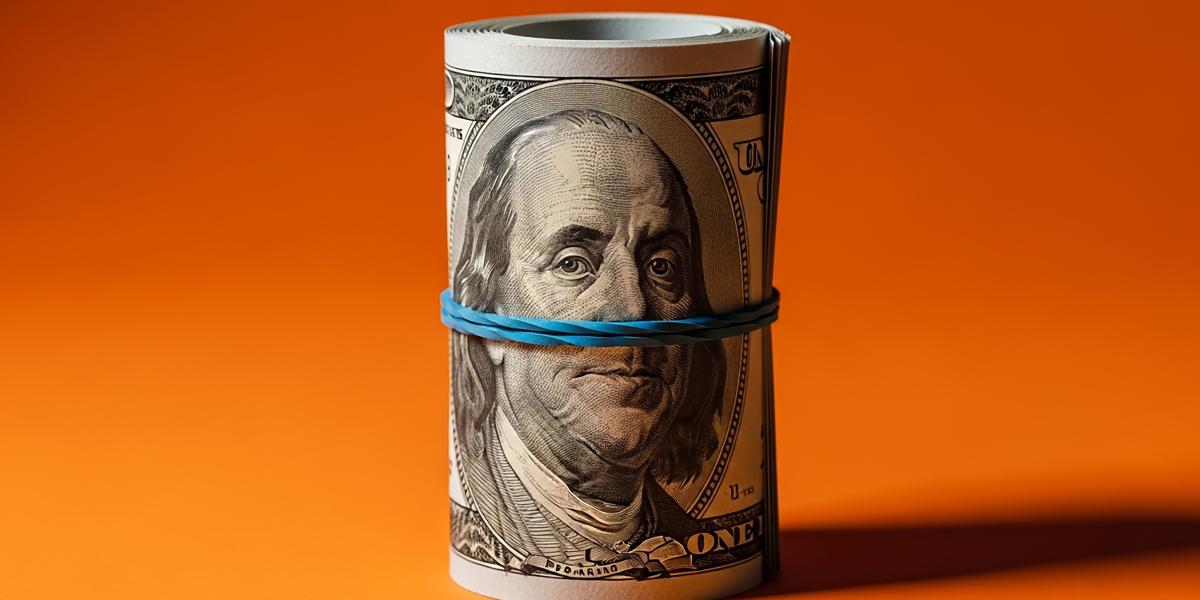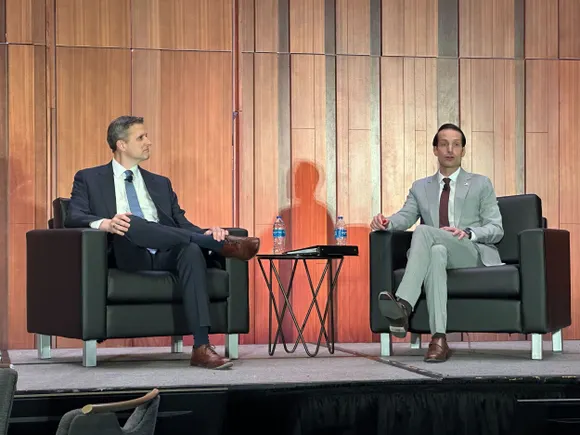The most common argument against a commodity money is that it doesn’t expand and contract with the “needs of trade.” The idea is that if the economy grows, the money supply should grow with it. Under the gold standard, increasing the supply of gold was slow and costly, so we needed to break away from those limitations with a system that allows for quick and low-cost increases in the money supply when warranted.
This argument was central to the founding of the Federal Reserve. In fact, it’s mentioned in the first sentence of the Federal Reserve Act: “An Act […] to furnish an elastic currency.”
The spirit of this argument was repeated when Congress endowed the Fed with its overarching policy goals: “[the Fed] shall maintain long run growth of the monetary and credit aggregates commensurate with the economy’s long run potential to increase production, so as to promote effectively the goals of maximum employment, stable prices, and moderate long-term interest rates” (emphasis added).
Why was the Fed created “to furnish an elastic currency”?
Unfortunately, the narrative surrounding the origins of the Fed have been severely misrepresented (much like the myth of how it obtained “independence”). There was no populist groundswell of support for an elastic currency. It was an engineered propaganda campaign on the part of big banks and business elites during the Progressive era, as Murray Rothbard highlights in A History of Money and Banking in the United States:
The complaints of the big banks were summed up in one word: “inelasticity.” The national banking system, they charged, did not provide for the proper “elasticity” of the money supply; that is, the banks were not able to expand money and credit as much as they wished, particularly in times of recession. In short, the national banking system did not provide sufficient room for inflationary expansions of credit by the nation’s banks.
By the turn of the century the political economy of the United States was dominated by two generally clashing financial aggregations: the previously dominant Morgan group, which had begun in investment banking and expanded into commercial banking, railroads, and mergers of manufacturing firms; and the Rockefeller forces, which began in oil refining and then moved into commercial banking, finally forming an alliance with the Kuhn, Loeb Company in investment banking and the Harriman interests in railroads.
Although these two financial blocs usually clashed with each other, they were as one on the need for a central bank. Even though the eventual major role in forming and dominating the Federal Reserve System was taken by the Morgans, the Rockefeller and Kuhn, Loeb forces were equally enthusiastic in pushing, and collaborating on, what they all considered to be an essential monetary reform.
Of course, there was widespread dissatisfaction with bank failures, and there were populist calls for inflation, like William Jennings Bryan who advocated for reintroducing silver, but the elite interests involved with the creation of the Fed favored a more surreptitiously inflationist system: elastic bank credit.
Banks wanted to be protected from irresponsible lending and the inevitable consequences of fractional reserve banking. They wanted a “lender of last resort” to bail them out and a coordinator of credit expansion. In short, they wanted to offload the risks and costs of bad banking practices onto the unsuspecting public.
Do we need elastic money?
There is no reason to think that a growing economy needs a growing money supply. Money is an exchange commodity, which means that changes in money prices can fully accommodate changes in the supply of and demand for goods and services. While the supply of gold can increase (or decrease through lost coins or melting down coins for non-monetary uses), its production is governed by the same profit and loss test that applies to all other production in the private market economy.
New gold is only introduced when miners and minters find it profitable to do so. And what does profitable gold production mean, but that people value the new gold coins over anything else that could have been produced with the same resources? The resulting money supply is exactly what the market “needs for trade.”
Thus, it was a positive feature of the gold standard that increasing the money supply was slow and costly. It was an economizing check on price inflation. It imposed a hard check on banks eager to expand credit on top of deposits. It imposed a hard check on the government, eager to spend more than it collected in taxes.
Austrian economists are sometimes caricaturized as “gold bugs” who have some weird fixation on gold as if it has some innate, fantastical properties. But consider what Mises said about gold: “That gold—and not something else—is used as money is merely a historical fact.” Later in the same chapter he says, “The gold standard is certainly not a perfect or ideal standard.”
Then why do Mises and other Austrian economists like the gold standard? According to Mises:
The significance of the fact that the gold standard makes the increase in the supply of gold depend upon the profitability of producing gold is, of course, that it limits the government’s power to resort to inflation. The gold standard makes the determination of money’s purchasing power independent of the changing ambitions and doctrines of political parties and pressure groups. This is not a defect of the gold standard; it is its main excellence.
Apoplithorismosphobia
Many disagree with my claim above that changing money prices can fully accommodate changes in the supply of and demand for goods and services. The implication of this is that a growing economy would be characterized by steady price deflation, a consequence those with “apoplithorismosphobia”—the irrational fear of deflation—cannot bear.
Sufferers typically have two reasons: (1) depressions usually coincide with deflation; and, (2) unexpected deflation makes it difficult for debtors to pay their debts.
I can prescribe some reading for those with this debilitating phobia (beyond Mark Thornton’s paper linked above):
Pavel Ryska showed that deflation is not harmful to growth and that the Great Depression was really an outlier in terms of the severity of the coincident economic decline and deflation.In Less than Zero, George Selgin explains that growth deflation is nothing to fear.Jörg Guido Hülsmann provides a full treatment of deflation, including discussion of the alleged debt deflation problem, in Deflation and Liberty.
Conclusion
It was special banking interests who wanted an elastic supply of money with the creation of the Federal Reserve, and this desire was to protect themselves from the bad consequences of their own actions. Since money is an exchange commodity, there’s no need for it to expand with the economy. It’s okay to let prices fall as we produce more goods and services.



























